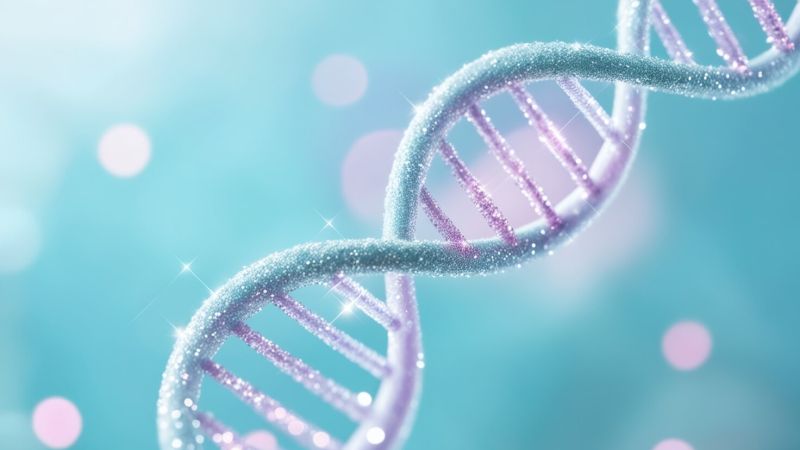
Can NAD Supplements Help You Lose Weight?
Losing weight can feel like an uphill battle, especially when you’re dealing with stubborn fat, a sluggish metabolism, and constant fatigue. If you’ve tried everything from restrictive diets to intense exercise regimens, yet still struggle to shed those extra pounds, the solution may lie in a vital compound called NAD+.
NAD+ (Nicotinamide Adenine Dinucleotide) is a coenzyme that plays a crucial role in cellular energy production, fueling a wide range of bodily functions, including metabolism. However, as we age, our natural NAD+ levels begin to decline, which can impact our ability to lose weight and maintain a healthy physique.
Fortunately, growing research suggests that supplementing with NAD+ precursors may hold the key to revitalizing your weight loss efforts. By boosting your NAD+ levels, you can potentially experience increased energy, enhanced fat-burning capabilities, and a faster, more efficient metabolism – all of which can contribute to successful and sustainable weight management.
So, can NAD supplements help you achieve your weight loss goals?
In this article, you’ll discover:
- How NAD+ can help speed up your metabolism and burn fat more effectively.
- The weight loss roadblocks NAD+ can help you break through for lasting results.
- How NAD+ supplements can make managing your weight and metabolism easier and more sustainable.
NAD+ and Metabolic Function

NAD+ is a crucial molecule that powers our cells’ energy production. As a coenzyme, it supports several metabolic processes, including glycolysis, the citric acid cycle, and oxidative phosphorylation1.
During glycolysis, NAD+ helps convert glucose (a type of sugar) into pyruvate, releasing energy in the process2. This pyruvate then enters the next stages of energy production, where NAD+ helps extract even more energy from it.
For glycolysis to keep functioning, NADH (the reduced form of NAD+) must convert back into NAD+. This recycling ensures the process continues without a buildup of substances, supporting consistent energy production for all cellular activities, including metabolism.
In the citric acid cycle, NAD+ helps break down nutrients to produce high-energy electron carriers3. As nutrients are processed, NAD+ collects these high-energy electrons, which act like power boosts for our cells.
These electrons are then sent to the electron transport chain during oxidative phosphorylation, where their energy is used to produce ATP, the main energy currency of our body. This process is crucial for boosting metabolism and burning fat to manage weight effectively.
However, as we age, our bodies naturally see a decline in NAD+ levels. A 2022 study published in the journal Experimental Gerontology found that these levels can decrease by more than 50% from young adulthood to older ages4.
This decrease is alarming because low NAD levels can signal an energy deficiency5, making it harder for cells to metabolize nutrients effectively. Maintaining the right balance of NAD+ is crucial for optimal metabolic function and supporting healthy weight management.
With less NAD+, our energy production slows down, making it harder to burn calories efficiently. This slowdown can lead to weight gain or difficulty losing weight, contributing to those frustrating plateaus many experience in their fitness journeys.
NAD+ is also involved in regulating sirtuins6, enzymes that help manage fat metabolism and insulin sensitivity. As NAD+ levels fall, sirtuin activity can decrease, further hampering the body’s ability to regulate weight.
Moreover, NAD+ helps regulate autophagy, the process by which the body cleans out damaged cells. As we age, autophagy slows down7, and since NAD+ is needed for this to happen, lower levels can lead to a buildup of damaged cells. This accumulation can mess with your metabolism and contribute to weight gain.
NAD+ and Fat Tissues

NAD+ actively supports the functions of our fat tissues, specifically in white adipose tissue (WAT) and brown adipose tissue (BAT), which together enhance energy balance and optimize metabolic health.
WAT acts as an endocrine organ that secretes hormones like leptin, which regulate appetite and metabolism8. NAD+ influences the production and function of this hormone. For example, adequate NAD+ levels may improve leptin receptor sensitivity, which helps regulate appetite and reduce overeating.
Normal NAD+ levels are also necessary for the cells in WAT to respond well to insulin9, allowing glucose to be used for energy instead of being stored as fat. Low NAD+ levels can impair this process, contributing to insulin resistance and excess fat storage.
On the other hand, brown adipose tissue (BAT) contains a high concentration of mitochondria and burns energy to produce heat through thermogenesis10. This process is regulated by the protein UCP1 (uncoupling protein 1), which releases energy as heat instead of storing it.
NAD+ fuels BAT’s high metabolic rate and promotes the breakdown of stored fat for heat production. Activating BAT through NAD+ boosts thermogenesis, increasing overall energy expenditure11, which can help with body weight management.
Another important role of NAD+ in fat tissues is its involvement in the “browning” of white fat. NAD+ helps trigger this transformation, where white fat cells convert into a more metabolically active form, similar to brown fat cells. As a result, these browned fat cells gain a higher mitochondrial density and can burn fat for energy.
A study published in Redox Biology shows that browning boosts fat’s metabolic activity12, turning WAT from a passive storage site into an active fat-burning depot. This process can potentially reduce fat accumulation, especially in areas prone to stubborn fat storage.
The Science Behind NAD+ and Weight Loss

NAD+ is vital for cellular energy production. It helps convert glucose and fatty acids into usable energy within the mitochondria13, the powerhouses of cells. This energy drives everything from muscle function to body temperature regulation, making efficient energy conversion essential for managing weight.
The body’s metabolic flexibility, or the ability switch between burning fats and carbohydrates for fuel, is improved by NAD+, which supports energy conversion and activates metabolic enzymes.
While NAD+ helps support metabolic processes and energy expenditure, optimal levels are linked to healthier body composition14. Higher NAD+ levels are associated with better preservation of lean muscle mass, while low levels can contribute to fat accumulation.
Through its effects on cellular health and metabolic rate, NAD+ can help maintain a favorable balance between muscle and fat in the body, leading to a leaner physique over time.
Indeed, research shows that NAD+ may support weight management and improved body composition15. Healthy NAD+ levels also boost mitochondrial function and fat metabolism, which may contribute to weight management and metabolic health in the long run.
NAD+ also affects adiponectin, a hormone produced by fat cells that regulates glucose levels and breaks down fatty acids. Optimal NAD+ levels support adiponectin production16, which in turn improves insulin sensitivity and reduces inflammation.
This can help the body manage blood sugar better and reduce fat storage, both key factors in healthy weight management. So, while NAD+ itself might not directly burn fat, its role in reducing inflammation and supporting metabolic processes indirectly supports weight control and helps prevent metabolic dysfunctions that often accompany obesity.
Clinical Research on NAD for Weight Loss

Emerging research shows how NAD+ promotes weight loss and fat metabolism. While NAD+ has long been known as crucial for energy production, new studies reveal its potential to enhance the body’s ability to burn fat.
A study published in Frontiers in Nutrition involving 5,144 participants found that taking NAD+ precursors can lower Body Mass Index (BMI) and increase adiponectin levels.17 Specifically, people who took NAD+ supplements experienced a small yet significant reduction in BMI.
Another study published in the Journal of Nutritional Biochemistry looked at how nicotinamide (NAM) affects obesity in mice. The researchers found that NAM supplementation reduced fat mass and improved glucose tolerance18. It also increased mitochondrial proteins in fat tissue, suggesting that NAM boosts mitochondrial function, which is important for burning fat.
Moreover, NAM raised NAD+ levels by over 30% and enhanced glutathione production, supporting better metabolic function and easier weight management. Overall, NAM seems to reprogram how fat cells work to fight obesity-related issues.
Another study also found that NAD+ precursors can help with weight loss by improving insulin sensitivity and enhancing metabolic function. By boosting NAD levels, these precursors may help regulate energy expenditure and fat metabolism, making it easier for the body to burn fat.19
Overall, optimized NAD can help support better metabolic health and weight management and reduce obesity-related complications.
NAD+ Precursors and Their Weight Loss Effects

Of all the known NAD boosters, two of the most well-known are nicotinamide riboside (NR) and nicotinamide mononucleotide (NMN).
A 2021 study found that NR supplementation was associated with reduced weight gain and preservation of muscle mass. NR also aided in weight reduction and increased lean mass relative to body fat. In rats on calorie restriction, NR reduced inflammation in the hypothalamus20, a brain region important for weight control.
These findings suggest that NR, especially when combined with calorie restriction, could aid in weight management by promoting fat loss without sacrificing muscle, as well as by reducing certain inflammatory markers.
NMN, another direct precursor of NAD+, also shows promising effects on body composition and metabolism. A study published in the IUBMB Life journal demonstrated that NMN helped reduce fat mass, preserved lean muscle, and improved glucose tolerance21.
The researchers also found that NMN lowers blood lipid levels and reduces liver fat, mitigating inflammation in fat tissue and addressing fatty liver issues often seen with obesity. NMN appears to support a shift toward a healthier body profile.
On top of that, NMN’s ability to reduce fat tissue inflammation, improve insulin sensitivity, and boost insulin secretion could make it a helpful tool for balancing blood sugar and supporting a leaner body—both important for managing weight and metabolic health.
While NR and NMN are among the most studied NAD+ precursors, two other forms of vitamin B3, niacin and nicotinamide, also contribute to NAD+ production and deliver their own unique benefits to help with weight management and overall metabolic function.
Niacin assists in the body’s fat and sugar processing, supporting cellular health, which is essential for weight control. At higher doses, niacin can also improve blood triglyceride levels, helping prevent fat accumulation and promoting a balanced body composition.
In fact, a study published in Cell Metabolism found that niacin effectively boosts NAD+ levels in adults. At doses up to 1,000 mg daily, blood NAD+ levels increased up to eightfold, and participants experienced a significant liver fat reduction of up to 50%.22
Nicotinamide, on the other hand, shows promise in metabolic function improvement through reducing fat mass and increasing lean muscle. In 2021, a study found that Nicotinamide improved weight management in mice23. When given to them, Nicotinamide increased how much energy they burned and changed their body fat composition. The mice ended up with more brown and beige fat, which is good for burning calories.
In addition to well-known NAD+ precursors, D-ribose is another supplement worth trying. This naturally occurring sugar doesn’t directly increase NAD+ levels like the others, but it helps the body produce ATP, which in turn supports NAD+ production. This makes D-ribose another useful tool for boosting energy and metabolism.
At the end of the day, taking a holistic approach when using NAD precursors to improve metabolic function for weight loss is key to maximizing results. Jinfiniti’s Vitality ↑® NAD+ Booster exemplifies this by combining four synergistic ingredients: NMN, Creatine monohydrate, D-ribose, and nicotinamide.
This unique formulation supports cellular metabolism and energy to help your body lose weight efficiently. This clinically validated formulation ensures you’re not just supplementing but revitalizing your entire well-being by increasing NAD at the cellular level.
Does NAD IV Therapy Work for Weight Loss?

NAD IV therapy has become a buzzword for those seeking weight loss, but it’s important to manage expectations. While NAD therapy boosts extracellular NAD levels, which can help with energy and metabolism, it shouldn’t be the sole strategy for shedding pounds.
When considering NAD supplements versus IV therapy, it’s important to understand their differences. NAD precursor supplements are easy to take regularly and support long-term cellular health, offering a gradual boost to NAD+ levels and metabolism over time. This makes them a good choice for steady, ongoing weight management.
In contrast, NAD IV treatment provides a higher, more immediate dose of NAD+, delivering quicker effects. While it can temporarily increase energy levels and metabolism, the impact on long-term fat loss or significant weight reduction may be limited without accompanying lifestyle changes.
Moreover, NAD IV therapy can be costly, and some people experience side effects like headaches, nausea, or dizziness. These effects are generally temporary but it’s important to be aware of them before undergoing treatment.
So, if you’re considering NAD injections for weight loss, it’s important to remember that it should be part of a broader strategy that includes a balanced diet and regular exercise. Ultimately, the choice depends on your personal health goals and budget.
Potential Side Effects of NAD Supplementation

Current evidence points to NAD+ supplements being generally safe and well-tolerated, with some important caveats: long-term effects of high doses aren’t fully understood yet, and the supplement market’s limited regulation poses inherent risks.
Variable product quality and potential impurities remain ongoing concerns, making it important to opt for manufacturers that demonstrate their commitment to quality through independent testing.
How to Increase NAD Levels for Weight Loss

Increasing your NAD levels is a powerful way to support metabolism and make weight management easier, and there are a few simple steps to get started.
First up: diet. Choosing niacin-rich foods like vegetables, whole grains, and lean proteins can give your body the building blocks it needs to produce more NAD+. Even adding fermented foods, like kimchi and sauerkraut, can help out with a small NAD+ boost while benefiting gut health.
Next, staying active is key. Exercise—especially high-intensity and endurance workouts—naturally supports NAD production in your cells. Whether it’s a brisk walk, a run, or a strength session, regular movement keeps your energy high and your metabolism on point.
Making small lifestyle tweaks also goes a long way. Practicing intermittent fasting or occasional calorie restriction can jumpstart autophagy, clearing out old cells and ramping up NAD production. And managing stress through meditation or yoga can help prevent oxidative stress, allowing your NAD levels to stay stable.
For added support, consider NAD-boosting supplements that contain clinically proven precursors such as Vitality ↑® NAD+ Booster. These can help optimize your NAD+ levels, supporting your journey toward achieving your ideal weight and physique.
If you’re experiencing symptoms like fatigue, weight gain, or difficulty shedding pounds, it could be a sign of NAD deficiency. Taking an Intracellular NAD Test can help you assess your baseline levels, giving you a clearer picture before starting any interventions.
With regular testing, you can fine-tune your supplementation and track whether your current dosage or supplement is effectively supporting your weight loss goals.
Referenced Sources:
- https://pmc.ncbi.nlm.nih.gov/articles/PMC7973386/ ↩︎
- https://www.jove.com/science-education/10739/energy-releasing-steps-of-glycolysis ↩︎
- https://www.ncbi.nlm.nih.gov/books/NBK553175/ ↩︎
- https://pmc.ncbi.nlm.nih.gov/articles/PMC7442590/ ↩︎
- https://clintransmed.springeropen.com/articles/10.1186/s40169-016-0104-7 ↩︎
- https://www.sciencedirect.com/science/article/pii/S2212877821000351?via%3Dihub ↩︎
- https://pmc.ncbi.nlm.nih.gov/articles/PMC3674854/ ↩︎
- https://pmc.ncbi.nlm.nih.gov/articles/PMC7503240/ ↩︎
- https://pmc.ncbi.nlm.nih.gov/articles/PMC3431206/ ↩︎
- https://pmc.ncbi.nlm.nih.gov/articles/PMC3972344/ ↩︎
- https://pmc.ncbi.nlm.nih.gov/articles/PMC7752291/ ↩︎
- https://www.sciencedirect.com/science/article/pii/S2213231717300812 ↩︎
- https://pmc.ncbi.nlm.nih.gov/articles/PMC4487780/ ↩︎
- https://pmc.ncbi.nlm.nih.gov/articles/PMC6509089/ ↩︎
- https://pmc.ncbi.nlm.nih.gov/articles/PMC10579603/ ↩︎
- https://www.sciencedirect.com/science/article/pii/S0955286323001663 ↩︎
- https://www.frontiersin.org/journals/nutrition/articles/10.3389/fnut.2023.1208734/full ↩︎
- https://www.sciencedirect.com/science/article/pii/S0955286322001279 ↩︎
- https://www.frontiersin.org/journals/endocrinology/articles/10.3389/fendo.2021.815565/full ↩︎
- https://pmc.ncbi.nlm.nih.gov/articles/PMC8475757/ ↩︎
- https://pubmed.ncbi.nlm.nih.gov/36785893/ ↩︎
- https://www.sciencedirect.com/science/article/pii/S155041312030190X ↩︎
- https://pubmed.ncbi.nlm.nih.gov/33870623/ ↩︎
Read More














